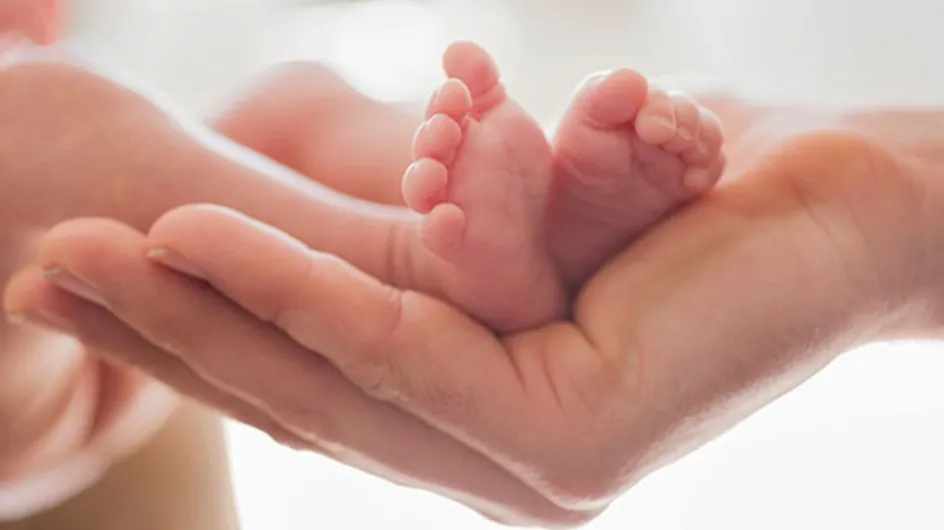From staring at you like you're a stranger to post-birth weight loss and strange things happening with their belly buttons, newborn baby behaviour can be disconcerting for new parents.
Well, knowledge provides comfort for new mums and dads (that's why you made Mothercare your second home), so we approached the dynamite Danika Wynn to prepare you for all the seemingly strange things you'll notice in your newborn.
Danika is a new midwife, Labour & Delivery nurse, a Lamaze Certified Childbirth Educator, and DONA trained doula. Whew! Is that enough credentials for you? Oh, wait, she's also an awesome human being.
Here's what you need to know about newborns so you won't worry over the little things and focus on the big thing - enjoying your new baby!
Delivery is going to do a number on their body
Getting born is like a mini odyssey for a baby and they'll have the physical signs to show for it!
Newborns typically have a cone-shaped head because of the "soft skull bones that shift over each other to help the baby fit through their mum's pelvic bone during delivery, [but] their head will go back to a normal rounded shape after a day or two."
Your newborn might have a "smushed nose and puffy ears" from its in-utero positioning. Again, Danika assures us that "this usually resolves within a couple of days as swelling goes down."
You'll probably notice flexed arms and legs too which causes their limbs to fold toward the chest and head. "This is because your baby was a tight little package in utero," Danika explains. "Flexed arms and legs are a sign of good muscle tone and very normal positioning for a baby in the first few weeks of life."
Bruising is worrying but normal
New parents don't want to see their infant bruised up but it's an unfortunate and unsettling side effect of labour.
"It's very common that bruising might occur during delivery and this will be monitored by your healthcare provider," Danika says." Infants often have little red marks on their face, back of their neck, or torso - these are very normal and will fade as time goes on." Luckily it'll take just a couple days to see the bruises disappear so please don't fret.
The umbilical cord sticks around for a bit
At least a piece of it does. "The umbilical cord stump is clamped after delivery and should not bleed after that," Danika says.
Yeah, it's kind of gross looking, but we also think it's incredible to see the remnant of the cord that gave your baby nourishment and oxygen while they were inside of you - but it'll jump ship soon enough!
"The stump will dry up and fall off within about 2 weeks after birth. All you have to do is keep it clean and dry, nature will do the rest!"
However, Danika urges new parents to call their doctor if "you notice bleeding or discharge from the cord or around it."
A newborn's skull finishes growing outside the body
"Soft spots, or fontanelles, are located on the head where the skull has not yet fused to allow for brain growth. One is toward the front and top of the head and the other is towards the back of the head." It is a bit worrying that there are these soft gaps in your baby's head but Danika tells us they'll close in due time.
"As the infant grows, the skull will grow over these spots," she explains. "The front fontanelle (called the anterior fontanelle) will close around 18 months of life, and the smaller, harder to feel fontanelle in the back of the head (posterior fontanelle) will close around 6 weeks of life."
Soft spots are information centres
You'll probably hope that the day the soft spots close comes quickly but buck up, woman, because you're a mum now. That means things that might've freaked you out before - blood, poop, soft spots in someone's head - don't phase you now. Pay attention to those soft spots!
"Fontanelles can help tell us a bit about the newborn's health status," Danika explains. "Sunken fontanelles are indicative of dehydration and a bulging fontanelle can be a sign of serious illness. If you notice either sunken or bulging fontanelles in your newborn you should contact your child's pediatrician immediately."
Newborns will lose weight
"Newborns lose about 7-10% of their body weight in the first week after birth," Danika says. "This weight loss is primarily fluid loss and is an expected physiologic process. They should be back up to their birth weight by 10-14 days of life and your pediatrician will help you monitor this."
Just keep feeding your baby whenever they need it even if their yo-yoing weight alarms you. "Frequent, on demand feeding is a vital part of keeping infant weight loss, and then subsequent gain, on track."
A newborn's skin isn't always smooth
You thought you wouldn't have to deal with acne until the teenage years. Unfortunately, that problem will come a lot sooner than high school.
Danika admits that "newborn skin is kind of tricky." It's normal for their skin to be dry and peel a bit because "they were growing in a hot tub throughout gestation!" If it worries you then apply a "gentle, mild lotion to your infant's skin...or leave it alone." Yup, baby acne and rashes will subside with time!
Newborns are always sleepy
Danika tell us that "infants sleep about 16 hours a day but usually in short bursts and they haven't yet established a circadian rhythm."
Newborns are also light sleepers, making them easy to wake up. The fact is, a newborn's sleeping habits are difficult for new parents. Danika empathises. "Just try to remember that it will get easier as they get older and that all this sleep is related to the amazing, fast development they experience in the first year of life!"
Crying is how newborns communicate
Crying is the only way a newborn can talk to us in the first few months of life," Danika says. "It's hard at first to differentiate what each cry means but as you get to know your newborn you will eventually be able to figure out what they need. Are they hungry? Do they need a nappy change? Do they just want a cuddle? Is it gas? Parents are hard wired to respond to their infant's cry - that's what makes us such good parents."
They'll sneeze and cough a lot
"Newborns in the first couple of days of life will sneeze and cough quite a bit to help clear out their airway from all of the amniotic fluid present during pregnancy and birth," we're told.
Of course, it's natural to start thinking your infant has already come down with a cold or flu but Danika claims that it's pretty unlikely. "A newborn who sneezes and coughs to clear their airway is a healthy baby that knows just what to do to stay healthy and strong."
Baby girls will spot
If you're having a daughter don't be alarmed by any spotting. Danika explains that "female infants often will have a little bit of pink vaginal bleeding at about 2-3 days of age."
"This is a result of the withdrawal of maternal hormones that the baby was exposed to in utero," and it's to be expected!
It's important to show affection even if it's not returned
After nine months of forced sobriety and Hormone Hell, you'll be desperate for the reward of unending affection from your newborn.
Well, unfortunately, you'll have to wait a little bit longer for your newborn to assure you what a great mumma you are but because they can see "about 8-12 inches from your face at birth," Danika informs us, bonding and nursing during that time is important for baby and mum.
"While they might not respond with a smile or kissing back, all of the love and cuddles you are providing your baby in the first few weeks and months of life are key to their social development."
The final word
Newborns are hard work and demand a lot all of your attention and energy. If you get overwhelmed, don't be embarrassed to ask for help.
"It truly does take a village to raise a child and that couldn't be more true than the first few months with your baby," Danika says. "If you don't have family or friends that are able or willing to help then consider hiring a postnatal doula. Postnatal doulas are trained to "mother the mother" and help new parents learn about their babies."
What newborn facts surprised you? Tweet us @sofeminineUK
You Might Also Like:
25 Things You Should Never Say To A Pregnant Woman
New Baby Checklist: The Newborn Essentials Guide That's Budget-Friendly
Why Do Kids Lie? How To Get Your Kids To Start Telling The Truth













